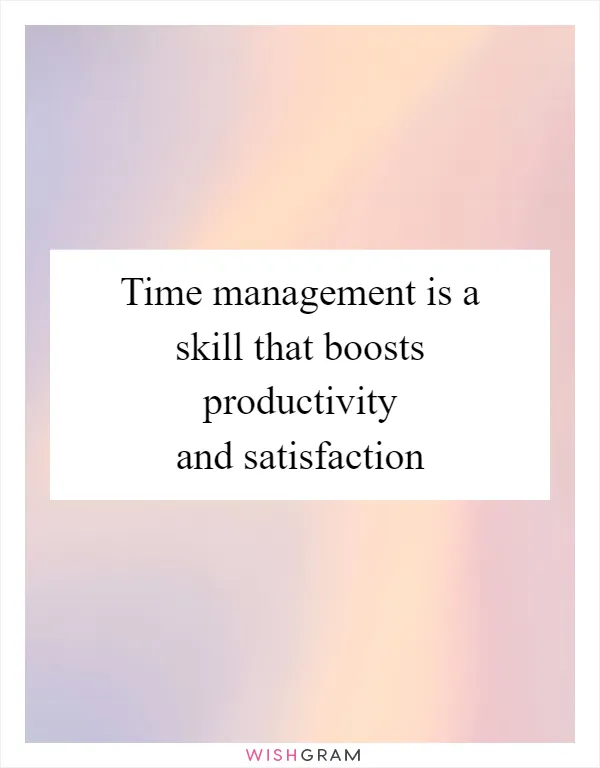Time management is a skill that boosts productivity and satisfaction
Time management is a crucial skill that plays a significant role in self-improvement, boosting productivity, and enhancing overall satisfaction in life. Effectively managing our time allows us to make the most of each day, accomplish our goals, and maintain a healthy work-life balance. By prioritizing tasks, setting realistic deadlines, and avoiding procrastination, we can optimize our productivity and experience a greater sense of fulfillment.
One of the key benefits of mastering time management is increased productivity. When we allocate our time wisely, we can focus on important tasks and complete them efficiently. By setting clear goals and breaking them down into smaller, manageable steps, we can tackle them one by one, ensuring progress is made consistently. This approach helps us avoid feeling overwhelmed and allows us to make steady progress towards our objectives. As a result, we become more efficient, accomplishing more in less time.
Moreover, effective time management contributes to a sense of satisfaction and fulfillment. When we manage our time well, we experience a greater sense of control over our lives. We are less likely to feel stressed or rushed, as we have allocated sufficient time for each task. This sense of control and accomplishment boosts our self-confidence and motivates us to continue striving for success. Additionally, by effectively managing our time, we can create space for activities that bring us joy and relaxation, leading to a more balanced and fulfilling life.
Time management also allows us to prioritize self-improvement. When we allocate time for personal growth, such as learning new skills, pursuing hobbies, or engaging in physical exercise, we invest in ourselves. By dedicating time to self-improvement, we enhance our knowledge, expand our horizons, and develop new talents. This not only boosts our productivity but also contributes to our overall well-being and personal satisfaction.
To improve time management skills, it is essential to develop effective strategies. Firstly, setting clear goals and establishing priorities is crucial. By identifying what is most important and aligning our tasks accordingly, we can ensure that our time is spent on activities that truly matter. Additionally, breaking down larger tasks into smaller, manageable steps helps us avoid feeling overwhelmed and allows for steady progress. Furthermore, avoiding distractions and practicing focus and concentration techniques can significantly enhance productivity.
Another valuable technique is creating a schedule or to-do list. By planning our day in advance and allocating specific time slots for each task, we can ensure that our time is utilized efficiently. Regularly reviewing and adjusting our schedule helps us stay on track and adapt to unexpected changes. Moreover, it is important to recognize our limitations and avoid overcommitting ourselves. Learning to say no when necessary and delegating tasks can help prevent burnout and maintain a healthy work-life balance.
